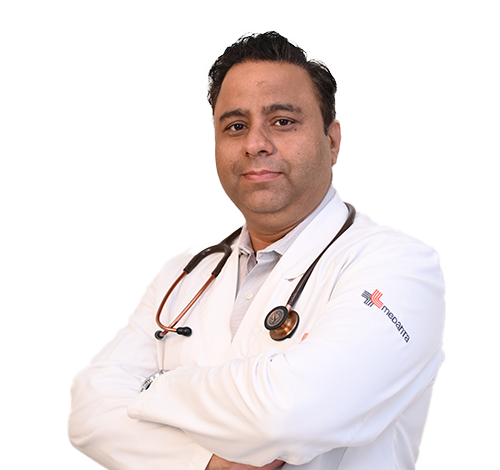Head and Neck Cancer: Early Signs, Risks & Treatments Explained
By a Head and Neck Cancer Specialist in Lucknow
Head and neck cancers may not be as widely discussed as lung or breast cancer, yet they represent a growing health challenge across the globe. These cancers affect vital areas like the mouth, throat, voice box, nasal passages, and salivary glands—organs that are essential not just for life, but for how we speak, eat, breathe, and express ourselves. The tragedy is that most people ignore the early signs, assuming them to be minor issues, only to receive a diagnosis when the cancer is already at an advanced stage.
A Global and Indian Health Concern
Worldwide, over 900,000 new cases of head and neck cancers are reported every year, making it the seventh most common form of cancer. But the burden is particularly heavy in India, which alone accounts for nearly a third of all global cases of oral cavity cancers. Among Indian men, head and neck cancers are among the top three most common cancers, strongly linked to tobacco, betel nut (supari), and gutkha consumption. In fact, nearly 30–35% of all cancers in India fall into this category.
If you’re experiencing any persistent symptoms in the mouth, throat, or neck region, consulting a head and neck cancer specialist in Lucknow at the earliest can drastically improve the chances of successful treatment.
What Causes Head and Neck Cancer
These cancers generally begin in the squamous cells that line the moist surfaces of the mouth, throat, and nose. A combination of environmental, lifestyle, and infectious agents contribute to their development.
Tobacco—whether smoked or chewed—is the leading cause, especially when combined with alcohol. Chewing substances like betel nut, gutkha, and pan masala is alarmingly common in India and significantly increases the risk. Poor oral hygiene, chronic mouth irritation, and exposure to industrial substances like wood dust and formaldehyde also raise the likelihood of developing cancer.
In recent years, human papillomavirus (HPV) has emerged as a leading cause of oropharyngeal (throat) cancers, especially in younger adults who may not have traditional risk factors like tobacco or alcohol use. These HPV-related cancers tend to respond better to treatment and have a more favorable prognosis—but early diagnosis remains key.
If you’re unsure about your risk, a head and neck cancer specialist in Lucknow can help assess your lifestyle and symptoms to determine if testing is necessary.
Early Symptoms: What to Look For
The early symptoms of head and neck cancers are often subtle and painless, which makes them easy to overlook. Unfortunately, this delay in seeking help allows the disease to advance.
Here are warning signs that should never be ignored:
- Mouth ulcers or red/white patches that don’t heal within 3 weeks
- Persistent sore throat or pain while swallowing
- Hoarseness or a change in voice
- A lump in the neck
- One-sided ear pain or hearing loss
- Bleeding from the nose or mouth
- Loose teeth or poorly fitting dentures
- Facial swelling or numbness, especially in the jaw area
If you’ve had a sore throat, a mouth lesion, or difficulty swallowing that has persisted, don’t assume it’s harmless. An evaluation by a head and neck cancer specialist in Lucknow can be the first step to protecting your health.
How Is Head and Neck Cancer Diagnosed?
Diagnosis starts with a thorough physical exam that includes inspection of the mouth, neck, and throat. A flexible nasopharyngoscopy—a small camera passed through the nose—allows detailed visualization of deeper areas.
A biopsy is essential to confirm the diagnosis and identify the type of cancer. Imaging studies like CT or MRI scans help determine the size and location of the tumor, while PET-CT scans can reveal whether the disease has spread to other parts of the body. For throat cancers, especially oropharyngeal ones, HPV and p16 testing are often recommended, as they influence both treatment decisions and outcomes.
Only a trained head and neck cancer specialist in Lucknow can guide you through this diagnostic pathway with precision and care.
Types and Stages
Head and neck cancers are classified based on the location:
- Oral cavity (tongue, cheek, gums, floor of the mouth)
- Oropharynx (tonsils, base of tongue)
- Larynx (voice box)
- Nasopharynx (behind the nose)
- Hypopharynx (lower part of the throat)
- Salivary glands and sinuses
Staging ranges from:
- Stage I: Small and localized
- Stage II: Larger but still confined
- Stage III: Involvement of nearby lymph nodes
- Stage IV: Spread to distant organs or multiple nodes
HPV-positive oropharyngeal cancers are usually diagnosed at a later stage but tend to respond better to treatment than HPV-negative cancers.
Treatment Based on Stage and Site
The treatment of head and neck cancers is highly personalized, depending on the tumor’s size, location, and spread, as well as the patient’s overall health.
- Early Stages (I–II): These are often curable with a single modality. Oral cancers may be treated with surgery, while laryngeal (voice box) cancers may respond well to radiotherapy, preserving the voice.
- Locally Advanced (Stage III–IVA): Combined approaches are used. This may include surgery followed by radiation, or concurrent chemoradiation, especially for oropharyngeal cancers. Preserving organ function is a key goal, particularly in the throat and larynx.
- Advanced (Stage IV): When the disease is widespread, the focus shifts to systemic therapies. These may include chemotherapy (cisplatin with 5-FU or taxanes), targeted therapy such as cetuximab (an EGFR inhibitor), and immunotherapy for selected patients. Reconstructive surgeries may also be performed to restore function and appearance post-tumor removal.
Managing such complex cases requires a multidisciplinary approach. That’s why partnering with a skilled head and neck cancer specialist in Lucknow, along with a team of medical and radiation oncologists, is vital for the best outcome.
Role of Targeted Therapy and Immunotherapy
Modern cancer care has advanced with the advent of molecular-targeted drugs and immune checkpoint inhibitors.
Targeted therapy, such as cetuximab, blocks cancer cell growth by interfering with specific cell receptors (like EGFR). It is often used in advanced, HPV-negative head and neck cancers, either alone or with radiation.
Immunotherapy, including drugs like nivolumab and pembrolizumab, works by activating the body’s immune system to attack cancer cells. These therapies have improved survival in patients with recurrent or metastatic disease. Clinical trials such as KEYNOTE-048 have shown that pembrolizumab can be particularly effective in PD-L1 positive tumors.
Talk to your head and neck cancer specialist in Lucknow about whether these newer treatments are right for your specific case.
Preventing Head and Neck Cancer
While treatment options continue to improve, prevention remains the most powerful tool. You can reduce your risk significantly by:
- Avoiding all forms of tobacco
- Limiting alcohol consumption
- Practicing good oral hygiene
- Getting the HPV vaccine, especially in young adults
- Steering clear of gutkha, betel nut, and pan masala
- Having regular dental and ENT check-ups, especially if you’re high-risk
Early identification of chronic ulcers, voice changes, or persistent throat pain can lead to earlier diagnosis—and higher survival rates.
Final Note: Speak Freely, Live Fully
Head and neck cancers not only threaten life—they also impact essential functions like speaking, eating, and appearance. But with early detection, expert guidance, and modern treatment, survival and quality of life can be dramatically improved.
Don’t wait for symptoms to worsen. If something doesn’t feel right, act now.
Book Your Appointment Now
If you or a loved one has noticed persistent mouth ulcers, throat pain, voice changes, or neck lumps—take action today. Early evaluation can save your voice, your health, and possibly your life.
✅ Schedule a consultation with a top head and neck cancer specialist in Lucknow now.












